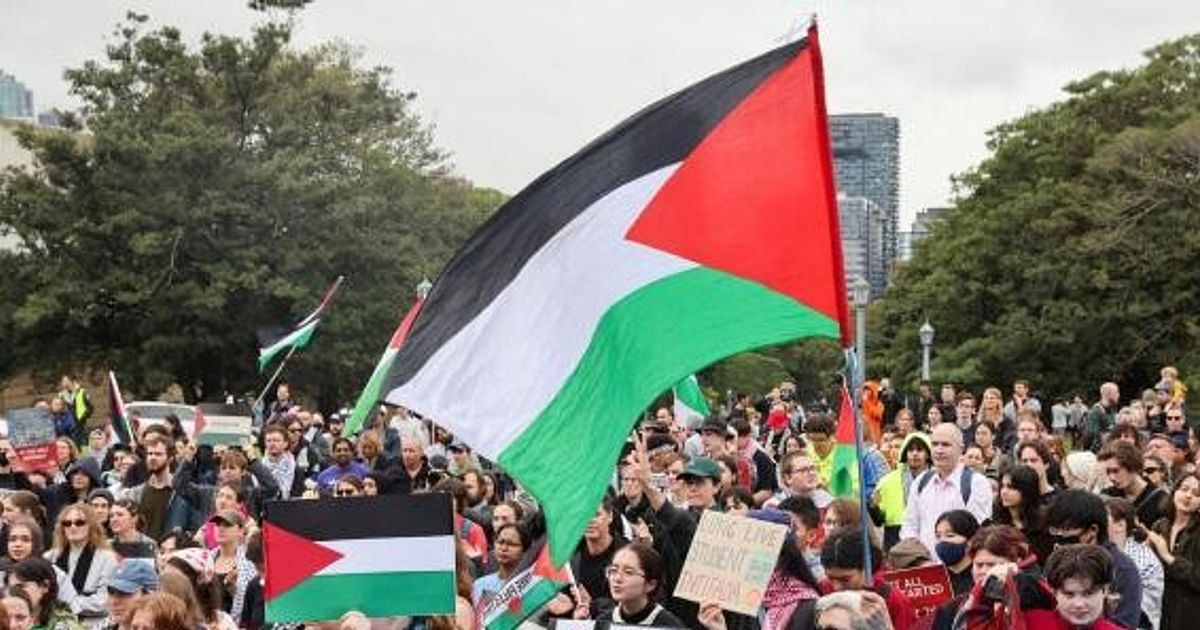Ukraine's Conscription Crisis Amidst Conflict: Debating Gender Equality and International Support
As Ukraine intensifies its conscription efforts in the face of Russian aggression, societal debates and international dynamics stir over the implications on equality and human rights.
Published April 26, 2024 - 00:04am
:quality(70)/cloudfront-eu-central-1.images.arcpublishing.com/irishtimes/VHFAVTA4U5C7FE2ZTPOGOKHXN4.jpg)
Image recovered from irishtimes.com
A surge in mobilization efforts by Ukraine has spawned a complex discourse surrounding conscription, equality, and international dynamics amidst the prolonged conflict with Russia. Various outlets have reported that Ukraine has made the choice to suspend consular services for men aged 18-60 who currently reside abroad, effectively calling them back to fight in the ongoing war. This measure includes halting the issuance of passports to military-age men outside the country, intending to bolster the ranks against the looming threat of a Russian offensive.
The policy, however, raises profound questions regarding gender-specific conscription, as it solely affects men, prompting some to criticize the absence of parity in national defense efforts. Concerns have been voiced that equality should encompass both men and women, with some deeming the lack of debate on the subject as a disregard for gender privilege and equality within the context of conscription.
Adding to the unfolding situation, Poland has expressed readiness to assist Ukraine in repatriating these men, with Polish defense officials announcing their willingness to aid in the logistical aspects of the mobilization. This move underscores the broader international support for Ukraine's defense and raises questions about the extent to which neighboring countries may become involved in the implementation of Ukraine's conscription laws.
Despite the Ukrainian government's measures to prevent male citizens from evading military service, there have been reports of frustration and confusion among the conscript-eligible population, some of whom rushed to passport offices only to find them closed. This has led to pointed criticism from various fronts, with claims that such measures may not effectively compel those abroad to return and join the military effort. Ukrainian officials, however, maintain that citizenship carries an obligation to defend the nation, even for those residing beyond its borders.
The recent edict by Ukraine, which subjects all male citizens within the age bracket of 18 to 60 to conscription, is a clear indication of the country's commitment to marshalling all available resources to counter Russian aggression. Such a spectacle of nationalism has been praised by some but scrutinized by others who see it as an unequal imposition of duty that raises ethical and legal considerations, particularly when it comes to gender roles in warfare. The policy is a stark reminder that despite progress in various sectors, when it comes to military conscription, traditional gender roles are often reinforced.
Beyond the debate on gender, the policy has international implications, highlighting the variable stances of different countries regarding conflict involvement. Poland's eagerness to facilitate the repatriation process is not mirrored across all of Ukraine’s neighbors, with some avoiding direct involvement, citing neutrality or political complexity. The policy also throws a spotlight on the increasing trend of international cooperation in matters of defense, as nations align their military strategies based on geopolitical alliances and shared ideologies against common threats.
The reception among the Ukrainian diaspora regarding conscription has been mixed. Reports detail an atmosphere of patriotic fervor within some communities, with individuals heeding the call to defend their homeland despite distances and difficulties. Conversely, there is a sense of betrayal and abandonment among others, who feel unjustly coerced into a confrontation they left home to avoid. The measure taken by the Ukrainian government also illuminates the challenges in enforcing conscription across borders, and the legalities involved in compelling citizens to return for military service.
Furthermore, the situation is a stark reminder of the psychological and social toll of war on a nation’s populace. Beyond the strategic and military aspects, the human element of fear, uncertainty, and sacrifice has dominated much discourse. The policy is emblematic of the desperation and dire circumstances under which Ukraine is operating. As the war prolongs, the pressure on resources and human resolve continues to escalate, making such extreme measures seem inevitable to those commanding the defense effort.
As Ukraine prepares its citizens for the possibility of more severe conflict escalation, human rights organizations are monitoring the situation closely, noting the precedents such actions may set in terms of international law and the treatment of citizens abroad. They are calling for regulations that balance the need for national defense with the protection of individual rights. Furthermore, the implications for the post-war period are significant; questions about the rehabilitation of repatriated soldiers and the long-term societal impact of selective conscription remain unanswered.
In conclusion, the decision to recall men of military age has far-reaching consequences for Ukraine and the wider international community. This move reflects not only the intensity and urgency of the current conflict but also the evolving dialogue around citizenship, duty, and the rights of individuals in times of national crisis. As Ukraine braces for potential escalations in hostilities, the world watches on, bearing witness to the sacrifices demanded in the name of sovereignty and independence.






